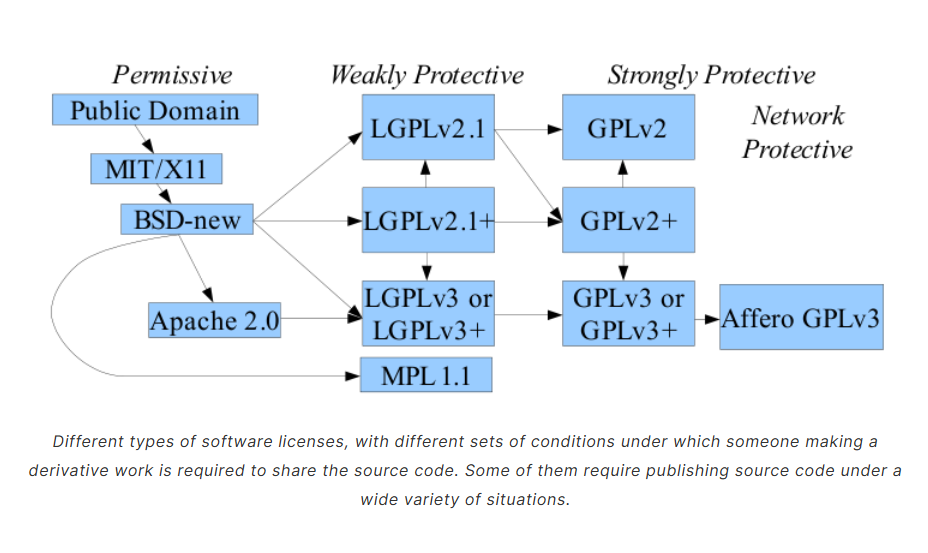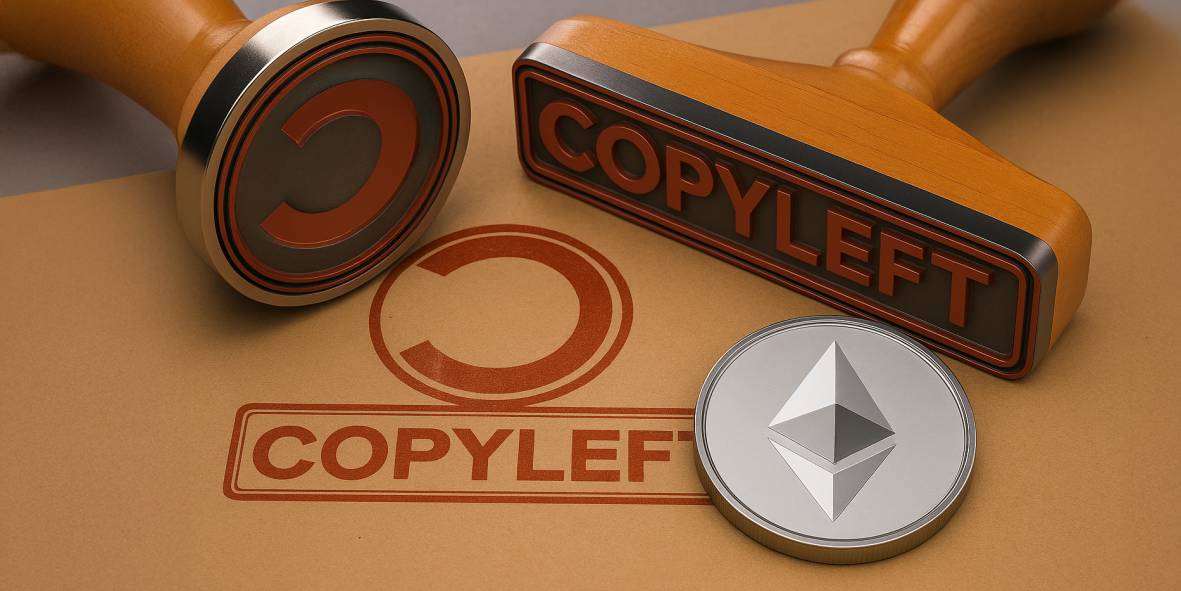Key Takeaways
- Vitalik Buterin supports copyleft licensing, arguing it’s necessary to ensure fair use and continued openness of shared code in an increasingly competitive crypto and tech landscape.
- Buterin says permissive licenses once made sense to encourage adoption, especially by hesitant enterprises, but with open source now mainstream, stronger legal protections are more practical.
- Buterin acknowledges that some copyleft licenses go too far, warning that requirements like those in AGPL can be overly aggressive in certain use cases.
- Ethereum reflects both the benefits and risks of open-source development, growing rapidly through transparency but also seeing vulnerable contracts reused without safeguards or any form of reciprocal contribution.
Ethereum co-founder Vitalik Buterin has voiced his support for copyleft licenses over permissive models, arguing that the growing competitiveness of the tech and crypto industries requires stronger legal protections to preserve openness.
In a blog post published on July 7, Buterin argued that permissive licenses, which are designed to allow free use and redistribution with minimal restrictions, were once ideal to him because they encouraged broad adoption, particularly by businesses wary of legal constraints.
However, Buterin said that recent shifts in industry behavior and broader structural trends have led him to reconsider.
Copyleft licenses, unlike permissive ones, require that any modified or derivative work also be distributed under the same license. This structure, according to Buterin, helps ensure that contributions to the public domain remain accessible and reciprocal while countering what he described as a growing drift toward proprietary control.
Open source goes mainstream, but risks grow
In his post, Buterin said he once favored permissive licenses because they made it easier for large companies to adopt open-source code without legal concerns. At the time, many firms were hesitant to work with licenses that required them to share their own modifications.
That hesitation, he said, is no longer a major barrier. “Open source has become mainstream, and nudging enterprises toward it is much more practical,” he wrote, citing Google, Microsoft and Huawei as examples of major contributors to open-source projects.
Crypto’s competitive environment makes Copyleft essential, says Buterin
Buterin said that the shift toward copyleft licensing is particularly relevant for the cryptocurrency sector, where open-source development has long been foundational.
He noted that the space has become increasingly competitive, with fewer developers voluntarily publishing their code. In this environment, licensing terms that require shared access could help maintain the openness that early blockchain projects depended on.
“The crypto space in particular has become more competitive and mercenary,” he wrote. “We are less able than before to count on people open-sourcing their work purely out of niceness.”
Licensing is seen as a defense against tech monopolies
Buterin cited economic theory to support his stance, referencing research by economist Glen Weyl on the risks of unchecked growth. He said that large companies benefit more as they scale, which can lead to disproportionate market control. Without mechanisms like copyleft to ensure openness, he warned, the tech industry could drift toward monopolization.
“Nonzero openness is the only way that the world does not eventually converge to one actor controlling everything,” he wrote. Copyleft, he added, functions as a decentralized way to enforce diffusion of innovation, without relying on centralized government mandates or corporate discretion.
Copyleft offers a neutral path to openness, Buterin says
Defending the value of decentralized tools to promote transparency, Buterin highlighted how copyleft licensing aligns with recent policy trends aimed at spreading knowledge. He pointed to the European Union’s tech standardization rules and the U.S. ban on non-compete agreements as signs that governments are recognizing the need to actively support openness.
While he described such regulations as imperfect, he said they reflect a broader shift toward encouraging the diffusion of innovation. Copyleft, he argued, achieves similar goals without favoring specific actors or requiring centralized enforcement. “The benefits of copyleft are much greater today than they were 15 years ago,” he wrote
Buterin warns that copyleft can overreach in certain use cases
While defending the value of copyleft licensing, Buterin acknowledged that it can become overly restrictive in some cases.
He warned that certain rules may force developers to share code even when it’s not being publicly released, which he sees as excessive.
“GPL-style copyright of code oversteps beyond a minimalistic notion of ‘using copyright against itself,’” he wrote.
He was particularly critical of stronger variants like the AGPL, saying, “This becomes even more true for stricter licenses like the AGPL,” which can require code disclosure even for software offered as a service.

Ethereum as a Test Case for Open Source
Buterin’s stance on licensing carries weight because it comes from direct, hands-on experience running one of the largest open-source platform in crypto. Ethereum itself exemplifies how open-source models can drive rapid innovation, while also exposing ecosystems to risks when safeguards are absent.
Since its 2015 launch, Ethereum’s codebase has been fully open to inspection, replication, and modification. This transparency has fueled explosive growth, as developers have deployed hundreds of thousands of smart contracts, including those supporting DeFi apps, NFTs, and Layer 2 solutions.
However, this same openness has exposed Ethereum to widespread cloning. Studies show that over 96% of Ethereum smart contracts share code with others, often including inherited vulnerabilities, demonstrating how unregulated reuse can spread both innovation and risk.
For Buterin, Ethereum’s journey highlights why openness alone is not enough, and shows that without stronger licensing frameworks, such as copyleft in this case, it becomes easier for actors to capture and commercialize shared work without contributing back.
In Conclusion
Buterin’s support for copyleft licensing highlights growing concerns about the sustainability of open-source development in a more competitive digital landscape. He argues that stronger legal frameworks are needed to preserve openness and ensure that shared innovation remains accessible.
As the crypto sector continues to evolve, his comments may influence how future projects approach licensing and intellectual property.
Read More: Ethereum Price Analysis: ETH Grinds Within Rising Wedge, Will 200-day SMA Defend Bulls?







